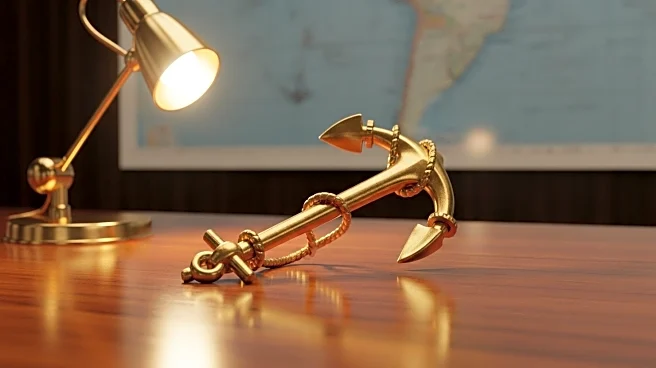What's Happening?
Mario Cordero, the CEO of the Port of Long Beach, has announced his retirement effective at the end of 2025. Cordero has been a pivotal figure in the port's operations for over eight years, guiding it through significant challenges, including the COVID-19 pandemic. His leadership saw the port adapt to fluctuating container volumes and implement the Green Ports Policy, which significantly reduced health-related pollutants. Cordero's career includes serving on the Board of Harbor Commissioners and as chairman of the Federal Maritime Commission. His departure marks the end of a notable era in maritime commerce leadership.
Why It's Important?
Cordero's retirement is significant for the maritime industry, as he has been a key leader in one of the busiest seaports globally. His initiatives, particularly the Green Ports Policy, have set environmental standards that influence port operations across North America. The transition to new leadership at the Port of Long Beach could impact ongoing projects and policies, affecting trade dynamics and environmental strategies. Stakeholders in the maritime industry will be closely watching the selection process for his successor, as it will shape the port's future direction.
What's Next?
The Board of Harbor Commissioners is in the process of selecting a new CEO, which is expected to take several months. This transition period will be crucial for maintaining the port's operations and strategic initiatives. The new leadership will need to address ongoing challenges such as adapting to global trade demands and continuing environmental commitments. The maritime community and local government will likely engage in discussions to ensure a smooth transition and uphold the port's legacy of leadership and innovation.
Beyond the Headlines
Cordero's retirement highlights the broader issue of leadership succession in major U.S. ports, which can influence national and international trade policies. His emphasis on environmental sustainability reflects a growing trend in the industry towards greener operations. The port's future leadership will need to balance economic growth with environmental responsibilities, a challenge that mirrors broader societal shifts towards sustainable development.











